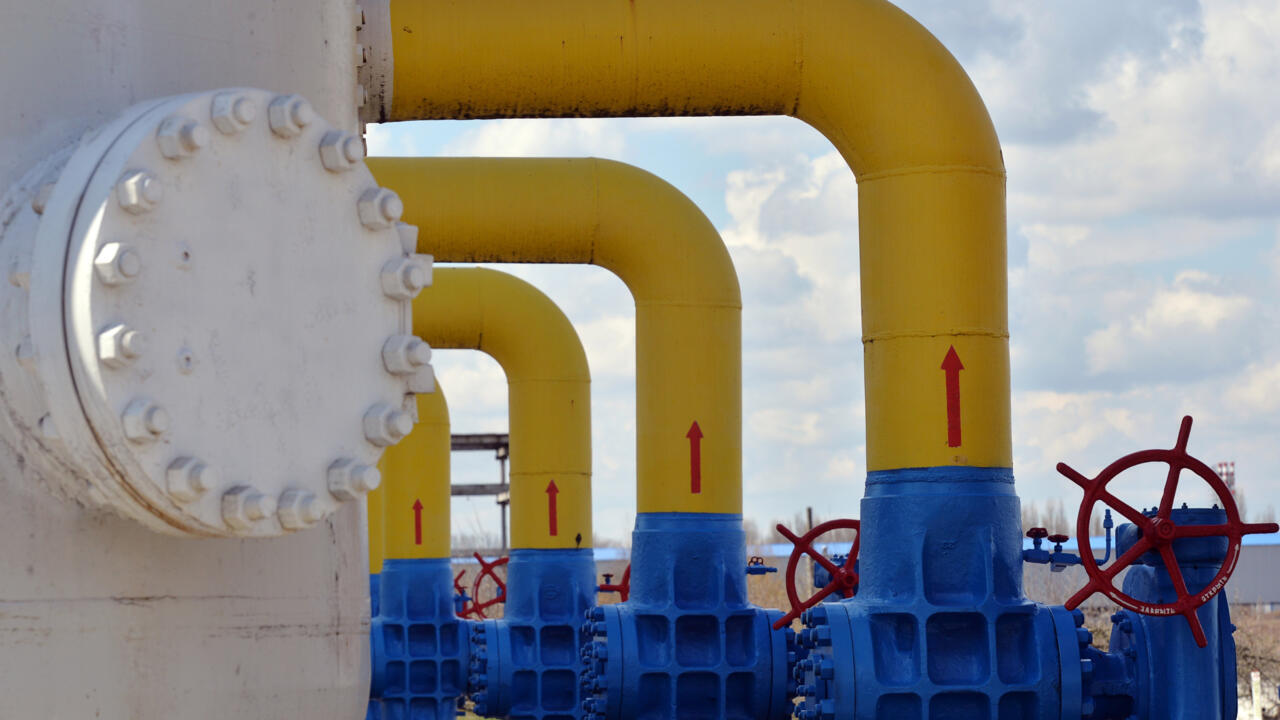Ukraine’s decision to turn off the taps keeping Russian gas flowing via its territory to Europe has already sown trouble in the continent’s east, with Moldova declaring a state of emergency and Slovakia threatening Kyiv with retaliation.
Under a five-year deal signed in 2019 Ukraine had allowed Russia to pipe gas to Europe via its territory. But that agreement is set to expire in the new year with Kyiv unwilling to extend it as a result of Moscow’s invasion.
Although Europe has fought to wean itself off dependence on Russian gas since President Vladimir Putin sent troops into Ukraine in February 2022, several eastern European states still look to Moscow for much of their energy needs. That represents an ongoing income stream for the Kremlin which Ukraine’s President Volodymyr Zelensky wishes to dry up.
Almost a third of the Russian gas sold to Europe is transported via Kyiv’s territory, said Phuc-Vinh Nguyen, head of the Jacques Delors Institute’s Energy Centre. The remainder is transported via a pipeline under the Black Sea to Bulgaria, Serbia and Hungary, or else by shipments of liquefied natural gas (LNG). But Tuesday’s data from Ukrainian operator OGTSU showed deliveries via the only entry point for Russian gas into Ukraine dropping to zero as of January 1, 2025.
The situation is at its most critical in Moldova, which borders Ukraine and has to contend with Russian-backed separatists at home. The tiny nation had already introduced a 60-day state of emergency earlier this month in anticipation of Kyiv’s expected cut. Then on Saturday, Russia’s Gazprom announced it too would halt gas deliveries due to a dispute over debt, sparking furious accusations of “oppressive tactics” from Moldova’s prime minister.
Gazprom had already reduced its deliveries to Moldova since the beginning of the invasion, with the Russian company solely supplying the unrecognised breakaway state of Transnistria. But the Moscow-backed region’s power station still provides some two-thirds of the electricity consumed across the country.
“The Kremlin has once again resorted to energy blackmail in order to influence the 2025 parliamentary elections and undermine our European path,” said Moldova’s President Maia Sandu. The pro-European politician was reelected in November after a vote marred by accusations of Russian interference.
With 14 billion cubic metres transported per year via Ukraine making up just five percent of the European Union’s total gas imports, the bloc said it was “prepared” for the flow’s cut. In a report published in mid-December, the EU judged the impact to be limited. “The Commission… has been working for more than a year specifically on preparing for a scenario without Russian gas transiting via Ukraine,” it told AFP on Tuesday. It said that the bloc’s gas infrastructure had been strengthened in the past few years, and pointed to work on making “alternative supplies” available to affected countries.
After Austria’s decision in December to terminate its long-term contract with Gazprom, only Slovakia is affected. Slovakia’s leader Robert Fico – one of the Kremlin’s few allies within the EU – has cried foul over Kyiv’s decision, travelling to Moscow to meet Putin in response. “Accepting the unilateral decision of the Ukrainian president is totally irrational and wrong,” Fico pleaded in a letter to Brussels, decrying “a major financial impact in a complicated economic period”. By way of response, the Slovak prime minister threatened to cut off the supplies of electricity Ukraine desperately needs, with Kyiv’s own energy infrastructure battered by nearly three years of systematic Russian bombardment.
On the other hand neighbouring Hungary – which like Slovakia has remained friendly to Moscow – receives most of its Russian gas imports via the Black Sea pipeline. As a result Budapest will remain largely unaffected by Ukraine’s decision.



They’ve had plenty of time to transition to cheaper, cleaner, and more sustainable alternatives.
Even if Ukraine WEREN’T fighting off an invasion from a fascist regime that relies on income from fossil gas, this would still be squarely on the governments who would rather deprive their people than do the obviously right thing.
The Kyoto Protocol went into effect in 2005 so there was plenty of time and warning to do better. the paris accord was 2016 so some 10 year projects would not be done yet but they should have been looking.
It’s likely that their entire economy is tied to that cheap russian gas. Like, literally infrastructure is made around that gas.
I mean, 5 years is still pretty fast for transitioning entire energy sectors and supply. Not that I fault Ukraine for turning off the gas, but I also don’t think Moldova could have transitioned in 5 years easily if at all.
It can take a decade just to build a single refinery, or new pipeline, or other infrastructure. It’s not something someone can just say go and have it all set up and running in a few years.